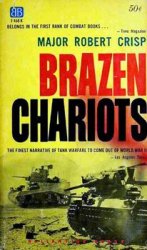At about the same time that Parliament passed the Stamp Act in 1765, they had also passed a Quartering Act designed to provide, in effect, room and board for British soldiers stationed in America. Modified in 1766, the act required colonial assemblies to provide such things as bedding, certain food items and other provisions in addition to living spaces for soldiers in public buildings. Since the presence of British troops and America was ostensibly to provide defense for the colonists, the assemblies were expected to cover the expense of such provisions. When resistance to the Townshend duties erupted in Boston, British troops were sent from New York to Massachusetts in 1768.
The presence of Redcoats in Boston, rather than calming the troubled waters, only roiled them further. The typical British soldier of the time was a rough-hewn sort, accustomed to taking advantage of his position to further his personal fortune. British soldiers sought employment during their off-duty hours, competing with local citizens, and being unmarried males, they were accustomed to free-spirited entertainments. The citizens of Boston often exchanged taunts and insults with the hated soldiers, and on the evening of March 5, 1770, violence erupted.
The trouble, which had been brewing for days, started when a rowdy mob began taunting a group of soldiers guarding the Customs House. The men began throwing snowballs, some containing rocks, and chunks of ice at the unfortunate soldiers and threatening them with clubs. An officer, Captain Preston, appeared and read the Riot Act (an actual document) to those causing the disturbance, ordering them to disperse. Tensions escalated, however, and someone shouted "Fire!" Weapons were discharged, and five Bostonians were killed, including Crispus Attucks, an escaped slave.
Captain Preston and the eight soldiers were tried for murder, and their defender was none other than future American president John Adams. Adams made a lengthy summary speech addressing the testimony of eyewitnesses, after which he concluded:
Facts are stubborn things; and whatever may be our wishes, our inclinations, or the dictates of our passions, they cannot alter the state of facts and evidence: . . . if an assault was made to endanger their lives, the law is clear, they had a right to kill in their own defence.
It was determined that the order to fire had not come from a British officer or soldier, but from someone in the crowd. Captain Preston and most of the soldiers were acquitted.
The so-called Boston Massacre was the worst violence that had occurred so far during the British attempt to cool things down. They responded by repealing the Townshend taxes except for the duty on tea. Things remained relatively quiet until 1772 when another event occurred in Rhode Island, known as the "Gaspee Affair." The Gaspee, a revenue cutter whose captain had successfully hunted down a number of smugglers, ran aground in Narra-gansett Bay, and during the night some locals sailed out, captured the crew, set fire and
Burned the schooner to the keel. When British authorities made inquiries among nearby residents, they were met with stony silence.




 World History
World History









